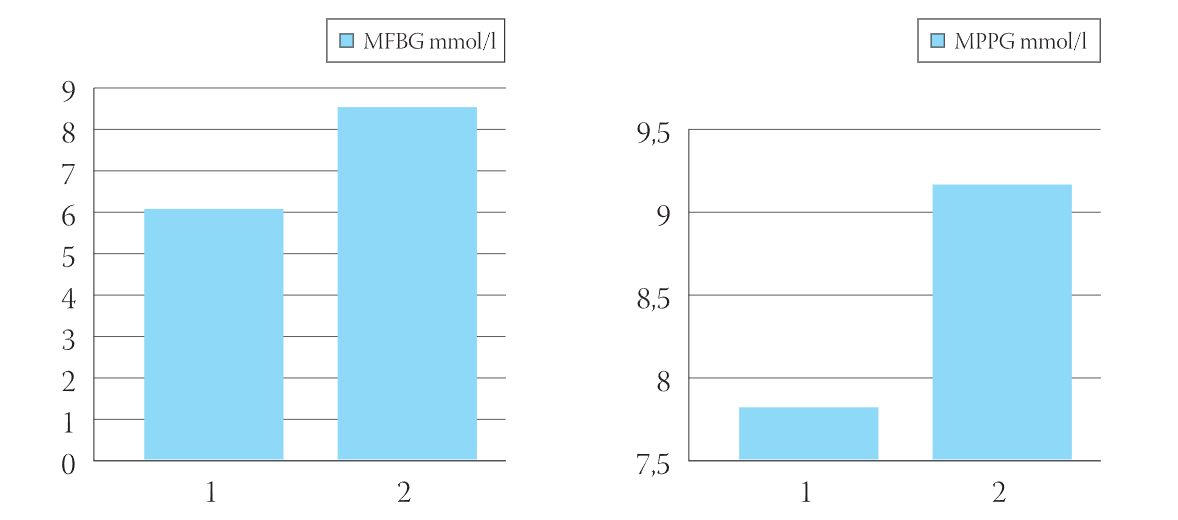Effects of Basal Insulin Analog and Metformin on Glycaemia Control and Weight as Risk Factors for Endothelial Dysfunction
DOI:
https://doi.org/10.17305/bjbms.2008.2882Keywords:
diabetes type 2, weight reduction, endothelial dysfunctionAbstract
Obese patients with type 2 diabetes and impaired glucose tolerance are at increased risk of development of cardiovascular diseases. Endothelial dysfunction may be a reason for development of atherosclerosis and cardiovascular diseases. Lifestyle modification, increased physical activity, weight reduction, energy restricted diet and good glycaemia control can be useful for the endothelial function improvement and may decrease the risk of cardiovascular diseases. The aim of this study was to evaluate the effects of basal insulin analog and metformin on glycaemia control and weight as risk factors of endothelial dysfunction. Total of 15 patients (9 male and 6 female) with type 2 diabetes were studied. The patients were monitored over six months period. Glycated hemoglobin (HbA1c), fasting plasma glucose (FPG), postprandial plasma glucose (PPG), and body mass index (BMI) were observed. Mean age of the subjects was 53,4 ± 6,27 years. Mean diabetes duration was 3,71 ± 1,89 years. At the end of the study mean body mass index decreased from 27,5 ± 1,45 kg/m2 to 25,7 ±1,22 kg/m2. In this study we included diabetic patients with fasting glycaemia over 7 mmol/ dm3, postmeal glycaemia over 7,8 mmol/dm3 and glycated hemoglobin over 7%. Prior to the study, the patients were treated with premix insulin divided in two daily doses and metformin after the lunch, which did not result in sufficient regulation of glycaemia. We started treatment with one daily insulin basal analog and three daily doses of metformin and monitored the above mentioned parameters. We advised patients to change their lifestyle, to practice energy restricted diet and to increase their daily physical activity. Insulin doses were titrated separately for each patient (0,7-1 IU/kg). Weight reduction was recorded after the study. Mean fasting glycaemia decreased from 8,6±0,49 mmol/dm3 to 7,04±0,19 mmol/dm3 (p < 0,05). Mean postmeal glycaemia decreased from 9,74 ± 0,79 mmol/dm3 to 7,6 ± 0,43 mmol/dm3 (p<0,05). Mean HbA1c decreased from 8,80 ± 0,59 % to 7,11 ± 0,22 % (p<0,05).
Treatment with one daily doses of basal insulin analog and three daily doses of metformin with lifestyle modification and weight reduction, in obese patients with type 2 diabetes can be useful for the endothelial function improvement and may decrease the risk of cardiovascular diseases.
Citations
Downloads

Downloads
Published
Issue
Section
Categories
License
Copyright (c) 2017 Bosnian Journal of Basic Medical Sciences

This work is licensed under a Creative Commons Attribution 4.0 International License.
How to Cite
Accepted 2017-12-26
Published 2008-11-20









